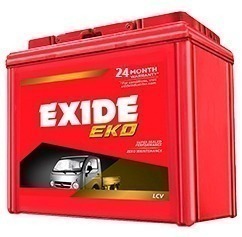Hyundai Motor and Kia have inked a deal with India’s Exide Energy Solutions aimed at expanding their presence in the global electric vehicle (EV) market.
Exide Energy Solutions had the largest annual production capacity of electric vehicle battery, at eight million units. It was followed distantly by Amaraja at 3.6 million units, as of March 2023.
The memorandum of understanding signed with Exide Energy Solutions underscores the strategic move of Hyundai and Kia to source batteries for electric vehicles, targeting India’s burgeoning automotive sector, ranked as the world’s third-largest.
Exide Energy, a subsidiary of Exide Industries, will focus on localizing EV battery production in India in partnership with Hyundai Motor and Kia. The partnership is poised to concentrate on manufacturing lithium-iron-phosphate (LFP) cells within the country.
With eyes set on India as one of their top revenue-generating markets, alongside the United States, South Korea, and Western Europe, Hyundai has disclosed plans for an investment of 3.25 trillion won ($2.40 billion) over the next decade, starting from 2023. This investment aims to bolster their foothold in the Indian market, including the introduction of six EV models by 2028, in addition to establishing charging stations.
Kia, on the other hand, has outlined its intentions to roll out locally optimized small-sized EVs beginning in 2025.
In a move reflecting the growing importance of India in the global EV landscape, Exide Energy is gearing up to commence EV battery cell production by the end of the current year.
India’s allure as a potential hub for EV production has not gone unnoticed by other major players in the automotive industry, including Tesla and VinFast, both eyeing the Indian market for establishing EV manufacturing facilities.
Shin Yoon-chul, an analyst at Kiwoom Securities, emphasized the country’s advantageous manufacturing labor costs, estimated to be approximately one-fourth of those in China. Additionally, India’s abundant lithium mines present a favorable scenario for automakers seeking reliable sources of essential battery materials within the country.
GreentechLead.com News Desk

